Weill Family Foundation Gifts UCSF with $185M to Build Neurosciences Institute
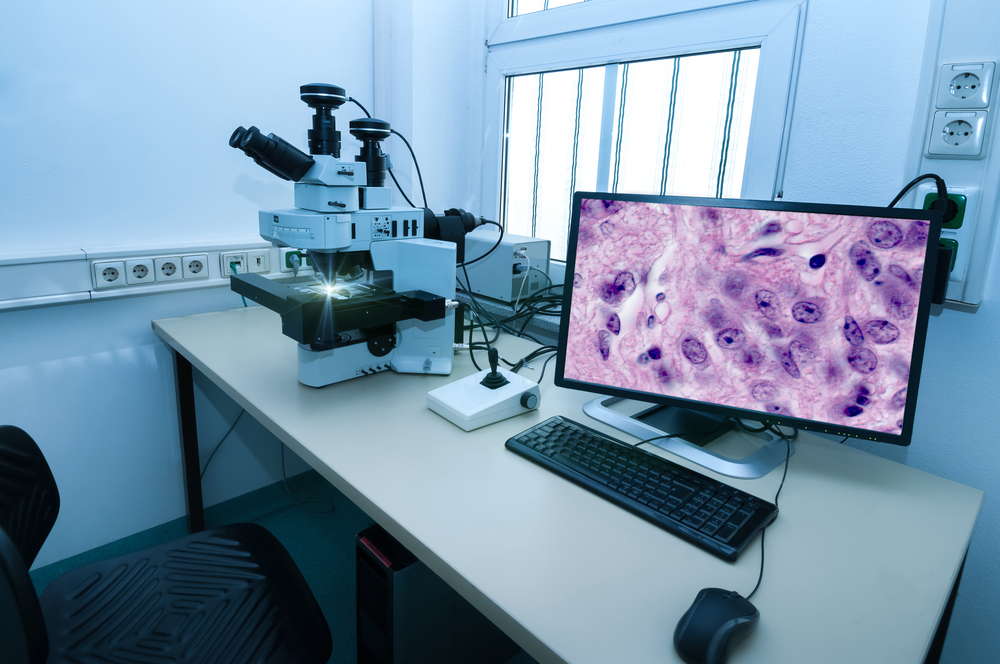
The University of California at San Francisco (UCSF) has announced that a new UCSF Weill Institute for Neurosciences will be established, made possible by $185 million in funding — the largest-ever gift to the university and one of the largest ever made to support the neurosciences in the U.S. — from the Weill Family Foundation and Joan and Sanford I. Weill.
The new institute will be a major facilitator for development of new therapies for diseases affecting the brain and nervous system, including psychiatric disorders. The Weill’s gift increases philanthropic commitments to UCSF’s neuroscience programs over the past year to more than $500 million.
Joan and Sandy Weill, who will celebrate their 61st wedding anniversary in June, were among the original signatories in 2010 to The Giving Pledge, a commitment by the world’s wealthiest individuals and families to dedicate the majority of their wealth to philanthropy. With this gift, the Weills have given more than $1 billion to educational, medical, cultural, and arts institutions in the last four decades, notably $600 million to Cornell University, Sandy Weill’s alma mater, and to Weill Cornell Medicine.
The Weills are firm believers that supporting these fields can help bridge cultural and educational divides and healthcare disparities across the world, and were awarded the Carnegie Medal of Philanthropy Award in 2009.
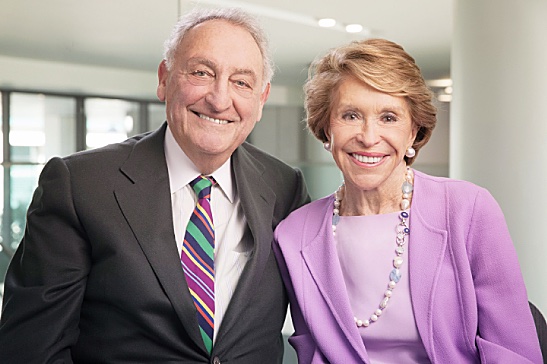 Sanford I. and Joan Weill. Photo Credit: Sean Donnelly
Sanford I. and Joan Weill. Photo Credit: Sean Donnelly
“This new gift to UCSF reflects an area of healthcare that is near and dear to our hearts,” said Joan Weill in a USCF release. “It’s an opportunity to better connect the bench and the bedside to make a bigger impact in neurodegenerative diseases like Alzheimer’s, ALS, and Parkinson’s, as well as multiple sclerosis and other diseases. In addition, by bringing basic research in psychiatry into the fold of the neurosciences, we can help advance our understanding of mental illness, and help remove stigmas associated with mental health, so that they can be treated like any other disease of the body. We want to keep healthy brains healthy and help find treatments for those affected by mental illness, which is heartbreaking for so many patients and families around the world.”
The Weills’ $185 million gift to USCF will provide the groundwork investment for the construction of a new 270,000-square-foot building at UCSF’s Mission Bay campus. The building will serve as headquarters for the Weill Institute for Neurosciences, housing cutting-edge research laboratories and clinics for patients with brain and nervous system disorders.
Additionally, a new UCSF Weill Innovation Fund will enable more high-risk, high-reward research projects to be conducted, with the objective of discovering and developing new treatments for neurological and psychiatric illnesses, providing UCSF neuroscientists more freedom and flexibility to advance innovative research goals.
Attracting and Cultivating Top Neuroscientists
The Weills’ gift will also fund advance USCF’s educational mission, with a new UCSF Weill Fellows program that will provide financial support to Ph.D. students in the Neuroscience Graduate Program, helping enable UCSF to continue to attract the best young scientists to its doctoral programs.
The Weill Institute for Neurosciences building and additional resources being made possible by the Weills’ gift are also anticipated to be a powerful asset in recruiting top scientists to UCSF. A Weill Scholars’ program will supply funding to help recruit the most promising junior faculty staff assistance for 45 principal investigators who will have laboratories in the new building, the majority of them expected to be newly hired faculty at the university, which is already San Francisco’s largest employer, generating more than 39,000 jobs and producing an estimated $6.2 billion in annual economic impact on the San Francisco Bay Area.
Part of the mission of the new Weill Institute for Neuroscience will be to intellectually connect UCSF neuroscience faculty located in different buildings and at different UCSF campuses, as well as more strongly uniting the university’s researchers with its physicians.
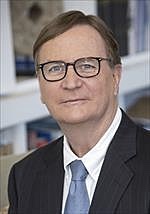 “Overall, the donation puts UCSF on a footing to harness its strengths in the field in ways that would have been inconceivable just a few years ago,” said UCSF Chancellor and Arthur and Toni Rembe Rock Distinguished Professor Sam Hawgood, MBBS, in a UCSF release. “We are extremely grateful to the Weill Family Foundation and Joan and Sandy, not only for the funding they’ve provided, but because they have challenged us to think big. It was a little over three years ago that I had the pleasure of meeting Joan and Sandy. It was evident from that very first meeting that they both saw the untapped potential of harnessing the exciting advances in the basic neurosciences to transform our treatment of patients.
“Overall, the donation puts UCSF on a footing to harness its strengths in the field in ways that would have been inconceivable just a few years ago,” said UCSF Chancellor and Arthur and Toni Rembe Rock Distinguished Professor Sam Hawgood, MBBS, in a UCSF release. “We are extremely grateful to the Weill Family Foundation and Joan and Sandy, not only for the funding they’ve provided, but because they have challenged us to think big. It was a little over three years ago that I had the pleasure of meeting Joan and Sandy. It was evident from that very first meeting that they both saw the untapped potential of harnessing the exciting advances in the basic neurosciences to transform our treatment of patients.
“Importantly, they also appreciated that to truly take advantage of this moment in time we would need to think across our traditional departmental boundaries. The Weill Institute does just that by combining resources with a transformational organizational vision, particularly for mental health, where there’s been so little progress for so many decades. Now is the moment for the neurosciences to begin making a real difference in the lives of patients and their families, and the Weills’ unprecedented generosity will help make this possible.”
The Weills said their principal goal with this gift is to help improve peoples lives. Sandy Weill’s mother died of Alzheimer’s disease and his father died while experiencing symptoms of serious depression. On the other hand Joan Weill’s mother lived to age 101 with her mind intact.
“We want to keep healthy brains healthy,” Joan Weill said, “and help find treatments for those affected by mental illness, which is heartbreaking for so many patients and families around the world.”
The couple explains that their interest in UCSF stemmed partly from Sandy Weill’s role as chairman of the UCSF Health executive council, which includes two top-ranked hospitals, UCSF Medical Center and UCSF Benioff Children’s Hospitals, as well as other partner and affiliated hospitals and healthcare providers in the Bay Area.
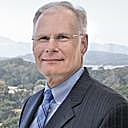 “Sandy’s counsel has been invaluable to UCSF Health,” said Mark Laret, president and CEO of UCSF Health, “and this gift from the Weill Family Foundation and Joan and Sandy means that our patients with neurological diseases will reap the benefits of our integration with UCSFs research powerhouse.”
“Sandy’s counsel has been invaluable to UCSF Health,” said Mark Laret, president and CEO of UCSF Health, “and this gift from the Weill Family Foundation and Joan and Sandy means that our patients with neurological diseases will reap the benefits of our integration with UCSFs research powerhouse.”
“UCSF has emerged as one of the leading biomedical research universities in the world in recent decades,” Sandy Weill said. “We were inspired to make this gift because we recognized the potential of UCSF physicians and scientists to significantly advance our understanding of brain diseases and lay the groundwork for new therapies. While advances have been made in cancer and cardiovascular diseases, scientists are only just beginning to gain traction with the brain, which is the most complicated part of the body and is prone to diseases that disproportionately affect the growing aging population. So much remains to be done in this area and we are thrilled to see what can be accomplished in the future.”
“Given budget constraints at the local, state, and federal levels,” Weill continued, “it is no secret that governments will not have the ability to fund all that is needed in biomedical research and beyond. Individuals, foundations, and companies must step up to the plate to help fill this void to create public/private partnerships to enhance education, medical research, and culture. This, we believe, will be the new paradigm in philanthropy for the future.”
Uniting All UCSF Neurosciences
The new Weill Institute for Neurosciences will also incorporate three UCSF departments — Neurology, Psychiatry, and Neurological Surgery. UCSF’s neurology and neurosurgery departments are ranked No. 1 in National Institutes of Health (NIH) funding, with the USCF Department of Psychiatry ranked sixth. The Department of Neurology and Department of Neurological Surgery’s medical residency programs are ranked No. 1 in the nation by reputation, according to Doximity, with the Department of Psychiatry also rated in the top five.
The new Weill Institute will also include UCSF’s Neuroscience Graduate Program, ranked by US News & World Report as one of the five leading Ph.D. programs in neuroscience, a cross-disciplinary alliance of 70 UCSF faculty members from 20 basic-science departments.
Another Weill Institute element will be a multidisciplinary research center dedicated to finding effective treatments for Alzheimer’s disease, frontotemporal dementia, Parkinson’s disease, and other neurodegenerative disorders — the UCSF Institute for Neurodegenerative Diseases.
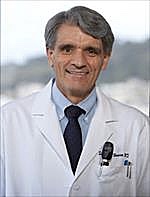 “The opportunity to tightly entwine these many fields is rare,” says Stephen L. Hauser, M.D., the Robert A. Fishman Distinguished Professor of Neurology, who is also the inaugural Weill Institute director as well as chair of UCSFs Department of Neurology, and known for his groundbreaking work in multiple sclerosis. “The barriers between the many disciplines of the neurosciences are quite real, and they do impede progress, but they are historical accidents,” he said. “The soul of the new Weill Institute is in breaking down these boundaries, bringing together the most talented people in science and in medicine with our patients.”
“The opportunity to tightly entwine these many fields is rare,” says Stephen L. Hauser, M.D., the Robert A. Fishman Distinguished Professor of Neurology, who is also the inaugural Weill Institute director as well as chair of UCSFs Department of Neurology, and known for his groundbreaking work in multiple sclerosis. “The barriers between the many disciplines of the neurosciences are quite real, and they do impede progress, but they are historical accidents,” he said. “The soul of the new Weill Institute is in breaking down these boundaries, bringing together the most talented people in science and in medicine with our patients.”
Exciting Neuro Advances Already Underway
The UCSF release notes that Hauser’s own work exemplifies this potential. Basic research begun 30 years ago in the Hauser lab has borne fruit in the form of an innovative new drug treatment for multiple sclerosis that received Breakthrough Therapy designation from the U.S. FDA in February. “Through the Weill Institute, UCSF scientists can make similar advances in combating a range of diseases and, thanks to modern computational, gene-sequencing, and drug-screening technology, at a much faster pace,” Hauser said.
The Weill Institute’s research laboratories will allow continued enhancement of UCSF’s basic strength in the neurosciences, which has generated seminal discoveries at genetic, molecular, cellular and circuit levels, illuminating the brain processes by which we learn and remember; see, hear, and speak; and how we move and perform actions. This increased 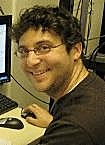 understanding of the brain’s normal functions has also illuminated what malfunctions in brain disease and the path to new treatments. Basic research on movement by UCSF neuroscientist Philip N. Sabes, Ph.D., for example, has generated insights on how to design brain-controlled prostheses for patients living with paralysis after stroke or injury.
understanding of the brain’s normal functions has also illuminated what malfunctions in brain disease and the path to new treatments. Basic research on movement by UCSF neuroscientist Philip N. Sabes, Ph.D., for example, has generated insights on how to design brain-controlled prostheses for patients living with paralysis after stroke or injury.
 Through the Weill Innovation Fund, the Weills’ gift to UCSF will also provide funding for research projects such as those being pursued by neurosurgeon-scientist Edward F. Chang, M.D., who is investigating whether brain implants, a technology that has proved effective in treating epilepsy and Parkinson’s disease, may also have applications in treating mood and anxiety disorders.
Through the Weill Innovation Fund, the Weills’ gift to UCSF will also provide funding for research projects such as those being pursued by neurosurgeon-scientist Edward F. Chang, M.D., who is investigating whether brain implants, a technology that has proved effective in treating epilepsy and Parkinson’s disease, may also have applications in treating mood and anxiety disorders.
The Weill Institute’s reach will span not only UCSF’s two main campuses and several of its buildings, including basic science labs, the institute’s headquarters will also house clinical and translational programs, including the new Global Brain Health Institute (GBHI) and numerous clinical programs. A UCSF/Trinity College Dublin joint program of GBHI is designed to bring experts in brain science together with leaders in medicine, public policy, social science, journalism, law, and the arts, to stem the tide of worldwide dementia.
Some of the clinically oriented programs to be housed in the main Weill Institute for Neurosciences building will include:
- A multidisciplinary center to treat neurodegenerative diseases, including Alzheimer’s disease and other dementias; amyotrophic lateral sclerosis (ALS); and Huntington’s disease.
- A center for deep-brain stimulation treatment of movement disorders, including Parkinson’s disease and dystonia.
- A circadian rhythms clinic to treat sleep disorders, which, in addition to being inherently disabling, are strongly associated with a range of neurological and psychiatric conditions.
- A clinic to treat chronic pain and migraine.
- A center to explore use of brain-machine interfaces and other bioengineering techniques to restore and repair neurological function compromised by stroke or injury, and potentially to manage epilepsy, mood disorders and anxiety disorders.
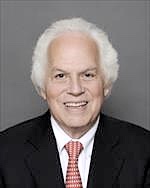 “UCSF is a great institution in the neurosciences, and this gift makes us even stronger,” said Stanley B. Prusiner, M.D., director of UCSF’s Institute for Neurodegenerative Diseases and recipient of the Nobel Prize in Physiology or Medicine in 1997 for his discovery of the misfolding of proteins into prions that cause mad cow disease. The UCSF release notes that recent studies by Prusiner and others suggest that prions may also play a role in some of the more common human neurodegenerative maladies, including Alzheimer’s and Parkinson’s diseases.
“UCSF is a great institution in the neurosciences, and this gift makes us even stronger,” said Stanley B. Prusiner, M.D., director of UCSF’s Institute for Neurodegenerative Diseases and recipient of the Nobel Prize in Physiology or Medicine in 1997 for his discovery of the misfolding of proteins into prions that cause mad cow disease. The UCSF release notes that recent studies by Prusiner and others suggest that prions may also play a role in some of the more common human neurodegenerative maladies, including Alzheimer’s and Parkinson’s diseases.
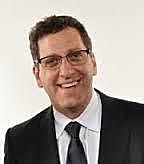 Matthew W. State, M.D., Ph.D., chair and UCSF Oberndorf Family Distinguished Professor of Psychiatry, notes that one of the largest blocks of space on the new Weill Institute building’s laboratory floors will be devoted to basic psychiatric research, one example of which is State and his colleagues’ discovery of more than 70 genes involved in the development of autism, and the project underway to identify particular brain cells affected by these genetic mutations.
Matthew W. State, M.D., Ph.D., chair and UCSF Oberndorf Family Distinguished Professor of Psychiatry, notes that one of the largest blocks of space on the new Weill Institute building’s laboratory floors will be devoted to basic psychiatric research, one example of which is State and his colleagues’ discovery of more than 70 genes involved in the development of autism, and the project underway to identify particular brain cells affected by these genetic mutations.
Investing in the Brain
Other philanthropic gifts to UCSF neurosciences over the past year include:
- Basic Research in Psychiatry ($25 million): The Bill and Susan Oberndorf Foundation’s gift advances basic research in psychiatry and the behavioral sciences.
- Global Brain Health Institute ($177 million): The Atlantic Philanthropies’ award to UCSF and Trinity College Dublin, the University of Dublin, creates the Global Brain Health Institute, a groundbreaking venture to stem the precipitous rise in dementia by training and connecting a new generation of leaders worldwide.
- Kavli Institute for Fundamental Neuroscience ($20 million): The Kavli Foundation’s gift will establish a research institute focused on gaining a deeper understanding of plasticity, the brains remarkable capacity to modify its own structure and function.
- Child, Teen and Family Center ($50 million): An anonymous donor’s gift will establish a new center, scheduled to open in 2019, offering an array of mental health services and providing a base for research and training to advance the prevention and treatment of mental illness.
- Mood Disorders Research ($20 million): The Ray and Dagmar Dolby Family Funds gift supports the Department of Psychiatry’s research on mood disorders, aiming to rapidly advance the understanding and treatment of depression, bipolar disorder, and related illnesses.
“This space will reflect UCSFs long history of commitment to public service, including the very high priority of addressing mental health, and will provide enough room to allow us to build a cadre of exceptional researchers to work on the complex problems in mental illness over the next 10 years,” State said. “The future lies in breaking down silos between psychiatry, neurology, and neurosurgery, and the integration of clinical and basic neuroscience. It is hard to imagine a more exciting environment in which to be working on these extremely challenging problems.”
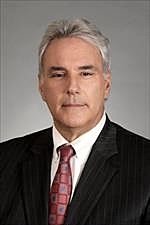 Mitchel S. Berger, M.D., chair and Berthold and Belle M. Guggenhime Professor of Neurological Surgery, and an acclaimed expert in treating brain tumors, said: “The Weill Institute offers an unprecedented opportunity for UCSF scientists and clinicians to come together under one roof to collaborate and advance our understanding of the most complex diseases that affect the central nervous system”.
Mitchel S. Berger, M.D., chair and Berthold and Belle M. Guggenhime Professor of Neurological Surgery, and an acclaimed expert in treating brain tumors, said: “The Weill Institute offers an unprecedented opportunity for UCSF scientists and clinicians to come together under one roof to collaborate and advance our understanding of the most complex diseases that affect the central nervous system”.
Collaboration with Weill Cornell
Reflecting the Weills’ loyalty to Sandy Weill’s alma mater Cornell University, and to Weill Cornell Medicine, the Weills’ gift also will fund establishment of a new annual neuroscience symposium to alternate between Weill Cornell and UCSF. “We have the highest regard for our colleagues at Weill Cornell, and look forward to this opportunity to share information and collaborate,” Hauser said.
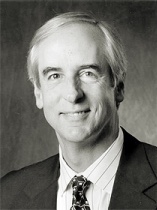 Hunter R. Rawlings III, interim president of Cornell University, offers his reflections on the Weills’ support for Cornell, and especially for its medical school, which was established during Rawlings’ tenure as Cornell’s president from 1995 to 2003. “I vividly remember meeting with Sandy and Joan Weill almost 20 years ago to discuss the possibility of a transformative gift to the Cornell Medical College,” Rawlings said. “They made it clear that they wanted to contribute to biomedical research that would lead to better human health. The donation they then decided to make, along with many more, has had an incalculable impact on what we now call Weill Cornell Medicine.”
Hunter R. Rawlings III, interim president of Cornell University, offers his reflections on the Weills’ support for Cornell, and especially for its medical school, which was established during Rawlings’ tenure as Cornell’s president from 1995 to 2003. “I vividly remember meeting with Sandy and Joan Weill almost 20 years ago to discuss the possibility of a transformative gift to the Cornell Medical College,” Rawlings said. “They made it clear that they wanted to contribute to biomedical research that would lead to better human health. The donation they then decided to make, along with many more, has had an incalculable impact on what we now call Weill Cornell Medicine.”
UCSF’s Hawgood noted the Weills’ contributions made to human health through their support of Weill Cornell Medicine, citing it as an outstanding legacy that the couple is now building on through their support of UCSF.
“UCSF has historically had very strong foundational building blocks across the breadth of neuroscience neurology, neurosurgery, psychiatry, and basic neuroscience,” Hawgood said. “The Weill Family Foundation and the Weills’ gift to establish the Weill Institute will enable us to fully integrate our program and allow us to think in a seamless way across the continuum of neuroscience, from the fundamentals of how the normal brain and nervous system work, through to how they are disturbed by disease.”
Joan and Sandy Weill
Joan Weill is a longstanding supporter of cultural, philanthropic, and civic endeavors who commits a great deal of her life to public service and education, including work as a volunteer in the psychiatric ward at Bellevue Hospital in New York City for two years; serving as president and board member of Citymeals On Wheels; and as a member of the executive committee and on the board of Women in Need. As former chair of Paul Smith’s College of the Adirondacks, she helped spearhead the college’s transition from a two- to four-year institution, and was also on the board for 20 years. Joan Weill is co-chair of the Advisory Committee of the Weill Music Institute at Carnegie Hall, which promotes classroom music education around the world, and serves as vice chair of the Board of Advisors of Weill Hall and the Green Music Center at Sonoma State University; is chair emerita of the Alvin Ailey Dance Foundation after serving on its board for 20 years, 14 of them as chair.
Her dedication to women’s health issues led to her appointment as co-chair of the New York Presbyterian/Weill Cornell Medicine Women’s Health Symposium.
Over a five-decade career, Sandy Weill has served as chairman and CEO of Shearson Loeb Rhoades; president of American Express; chairman and CEO of Travelers Group; and chairman and CEO of Citigroup. In 2014, Weill was named to CNBCs First 25, a list of 25 people who have globally exerted the greatest influence in business over the past quarter-century. A former director of the Federal Reserve Bank of New York, Weill has served on numerous corporate boards, including Hamilton Insurance Group; United Technologies; AT&T; and E.I. DuPont De Nemours.
Weill was also the recipient of Financial World magazine’s CEO of the Year Award in 1998, and the same honor from Chief Executive magazine in 2002. He retired as chairman of Weill Cornell Medicine after 20 years, and he’s also retired as chairman of Carnegie Hall after serving in that capacity for 24 years, and is now president. A graduate of Cornell University, Weill founded and is chairman of the National Academy Foundation; is chairman of Weill Hall and the Green Music Center at Sonoma State University; chairman of the Lang Lang International Music Foundation; and a Chancellors Advisory Board member at University of California, Davis, and a member of the American Academy of Arts and Sciences.






